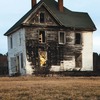Six times, families in Maryland woke up to the terror of a fire burning at their homes, the work of an arsonist. He hit one target three times — including just before a family was about to move back into their damaged home. In all, 12 fires damaged or destroyed cars and buildings.
Some attacks were caught on video. But for years, investigators didn’t know who was setting the fires, which hit several Maryland counties over nearly a decade. Then came another shocker: the man behind the fires was David Crawford, who had repeatedly pledged to protect others and had recently been the police chief in Laurel, Md.
YouTube
In a stunning turn of events, Crawford was arrested in 2021; a Howard County jury convicted him in March, after prosecutors presented a “target list” of victims and other evidence. And now Crawford, who spent his career in law enforcement, has been sentenced to eight life terms, plus 75 years.
Some of those terms will run concurrently, leaving Crawford, 71, with an “executable prison sentence” of two life terms, prosecutors said.
“The horror and nature of arson is so deeply powerful in its impact and complete in its destruction in the victim’s peace of mind that it is only fitting the defendant spend the rest of his natural life behind bars,” State’s Attorney Richard Gibson said after the sentencing.
The attacks took place in the counties of Howard, Frederick, Charles, Montgomery, Anne Arundel and Prince George’s, from 2011 to 2020.
Disputes over “white privilege” and professional grudges
“Concealed within the suspect’s cellular phone, Investigators found a ‘Target List’, listing all known victims,” according to court documents filed in the case.
Crawford targeted people for a range of reasons, from perceived slights by his former colleagues to anger directed at his chiropractors. There were also racial and social motivations: One entry on his arson target list identified a person only as “White Privilege.”
That reference was linked to Crawford’s wife, Mary, who disputed the concept of white privilege during training for volunteers in a Court Appointed Special Advocate program, according to charging documents in the case. After the program’s coordinator removed Mary Crawford from the program, a car was set on fire at the coordinator’s home, causing significant damage to her mother’s 2014 Toyota Camry.
And after Crawford disagreed with a woman who served with him on a committee setting new school district boundaries, he caused more than $340,000 in damages to her home, setting three separate fires, investigators said.
Another trio of fires targeted Crawford’s stepson and his family — first at one home in Montgomery County, and then at a different address. In one of those fires, a neighboring townhouse sustained more than $40,000 in damages. Crawford apparently had several heated arguments with his stepson shortly before the first of those fires, in 2016.
Other fires targeted people Crawford clashed with during his police days, including police and city officials he believed had worked against him.
Video and a “target list” incriminated Crawford
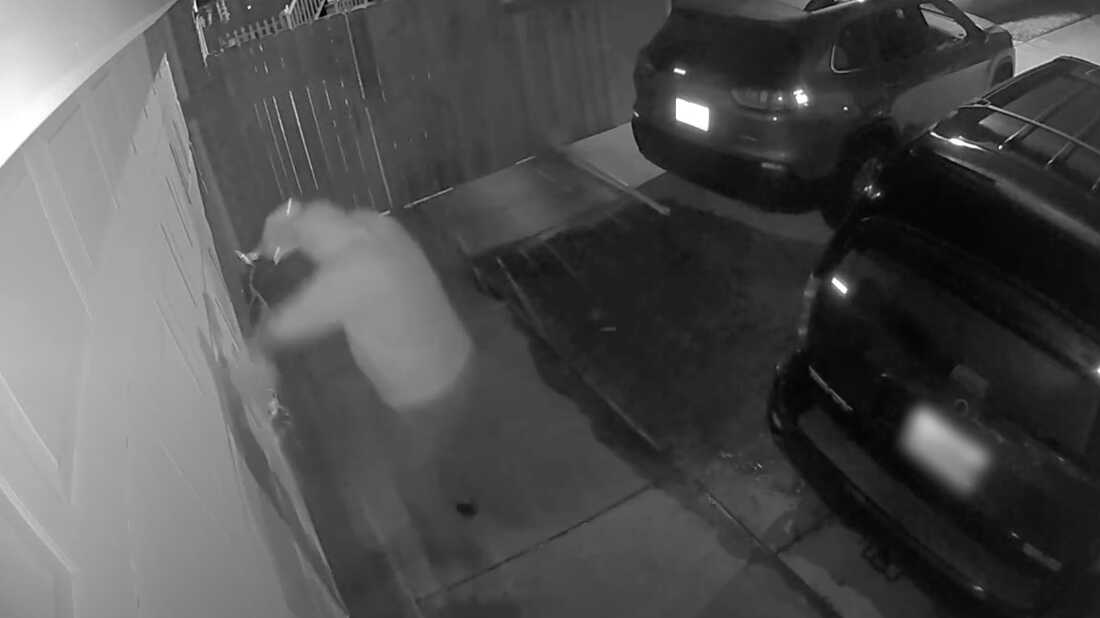

When investigators in one Maryland county shared a video of an arsonist at work, their peers in other counties recognized similarities to a suspect in their own cases. Their collaboration eventually led to David Crawford, a former police chief.
Prince George’s County Police Department
hide caption
toggle caption
Prince George’s County Police Department
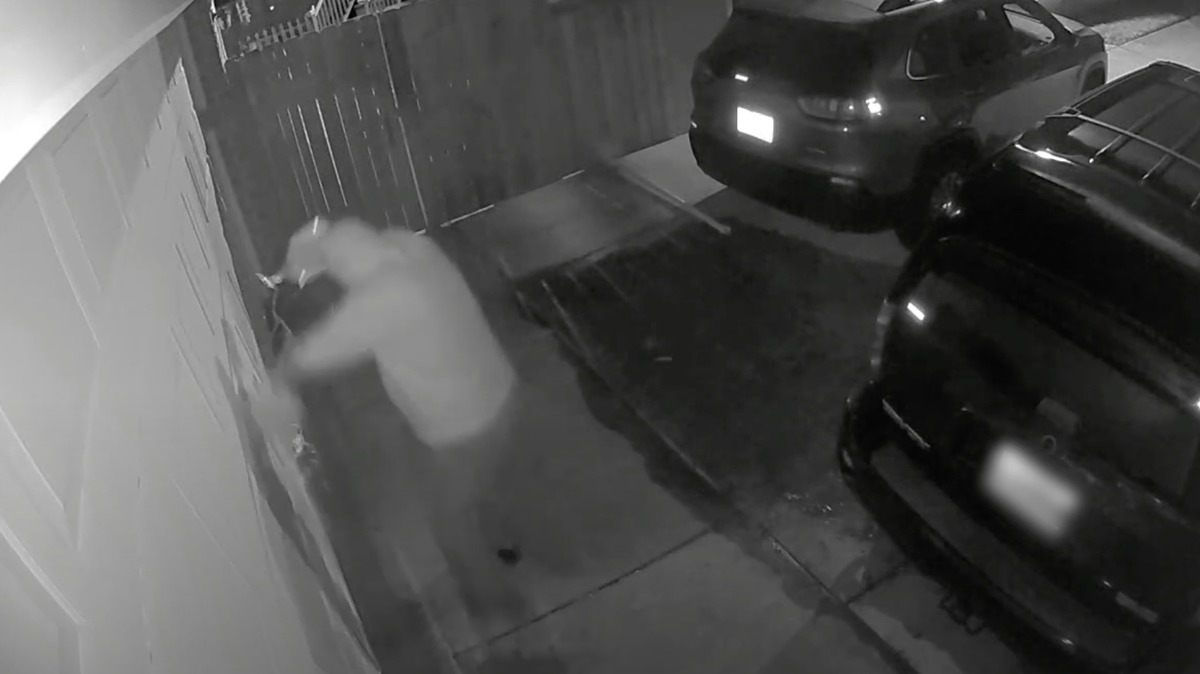

When investigators in one Maryland county shared a video of an arsonist at work, their peers in other counties recognized similarities to a suspect in their own cases. Their collaboration eventually led to David Crawford, a former police chief.
Prince George’s County Police Department
Investigators from several police and fire agencies identified telling patterns in the fires. In some cases, surveillance video captured the arsonist on camera, showing a man gushing gasoline onto cars and buildings before lighting fires that were sometimes explosive. His identity was shielded by a hoodie.
While community tips and witnesses helped build a case against Crawford, Prince George’s County Battalion Chief Shajahan Jagtiani said at the time of Crawford’s arrest that a breakthrough came when his county, after running out of leads in a 2019 arson, decided to post video of the arsonist online.
When an investigator in neighboring Montgomery County saw the footage, alarm bells went off.
“That surely looks exactly like the person in my video,” Lt. Christopher Moe recalled thinking when he saw the footage. The investigators started to meet and share information, convinced they were chasing the same man. The case grew from there.
Finally, a key connection was made: all the victims had had disagreements with Crawford. And in several cases, victims said he had called or messaged them shortly after the fires, even asking for photos. When officers searched Crawford’s home, they found the document titled “Target List,” naming his victims.
Crawford used Google Maps to find targets’ addresses
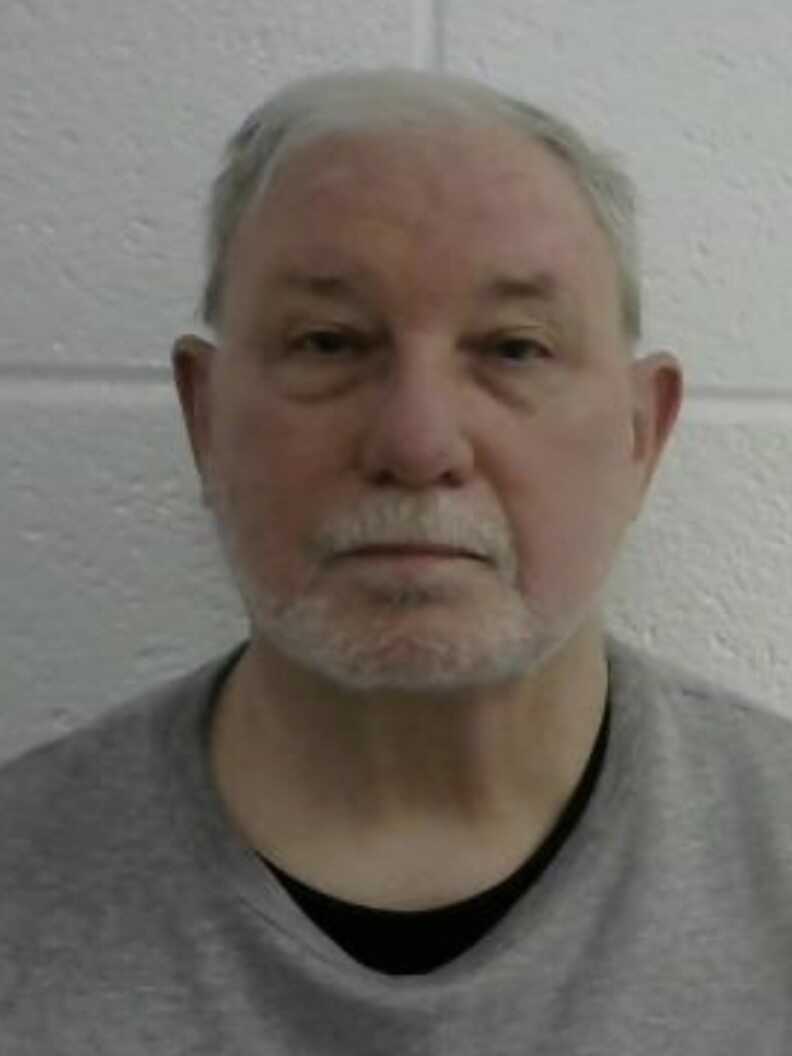

David Crawford, a former police chief in Laurel, Md., was hit with a lengthy prison sentence over a string of arson attacks on homes and cars.
Prince George’s County Fire/EMS Department
hide caption
toggle caption
Prince George’s County Fire/EMS Department
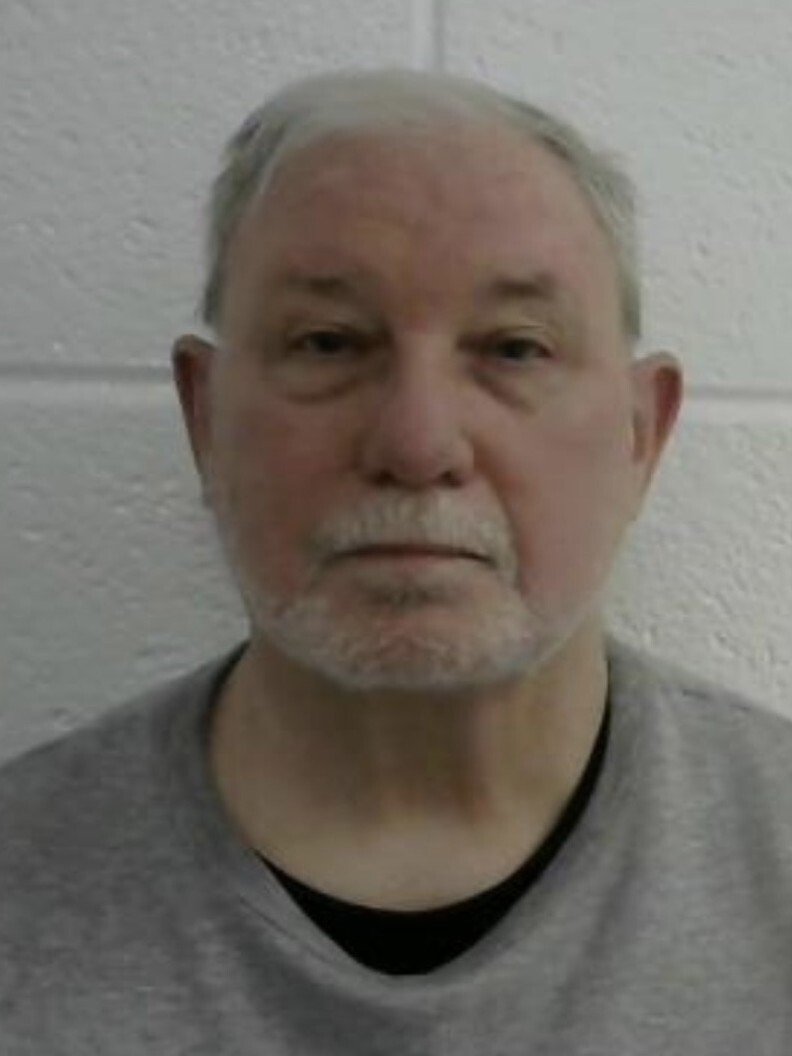

David Crawford, a former police chief in Laurel, Md., was hit with a lengthy prison sentence over a string of arson attacks on homes and cars.
Prince George’s County Fire/EMS Department
Electronic devices provided a host of details about Crawford’s activities, from Google Map searches for victims’ addresses to Apple Health app data showing he was awake and active during the pre-dawn timeframe of several attacks.
A trove of evidence was also recovered from an attack that went very badly for Crawford in 2011, when he set fire to two vehicles at the home of Laurel’s then-deputy city manager. In scenes caught on video, the arsonist inadvertently set his own lower leg on fire and stomped his shoe in an attempt to put out the flames. Investigators found that shoe — a size 10 Nike sneaker — along with a Bic lighter, a wooden stick and, farther afield, the remnants of some burned-up jeans.
Records also showed that Crawford’s email was used in a posting on a medical forum about a burn on his calf, about 17 days after the arsonist was seen setting his leg on fire. Officers later confirmed that he sustained a burn scar in that spot.
No one other than Crawford was reported as injured in the fires. But the charging document stated, “A reasonable person would know that if you set a fire to a home in the middle of the night when most people are sleeping, serious injury and/or death are likely.”
Crawford’s career in law enforcement dates to the 1970s. He earned the rank of major in the Prince George’s County Police Department before retiring in 2000 and becoming chief at the District Heights Police Department. He was the police chief in Laurel from 2006 until he resigned in 2010.
Crawford was found guilty of eight counts of attempted first-degree murder (because some of his victims were sleeping in the homes he set on fire), along with three counts of first-degree arson and one count of first-degree malicious burning.
This story originally appeared on NPR


